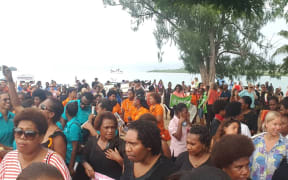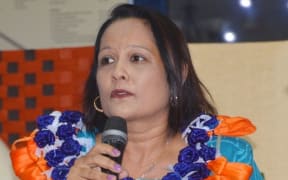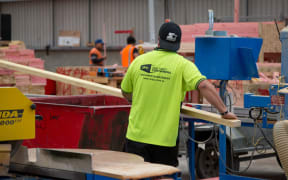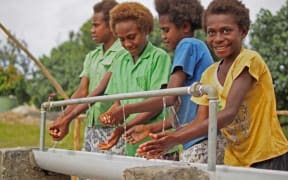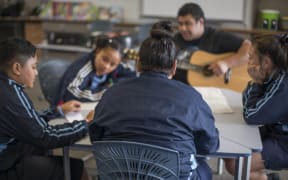Students in the Pacific could achieve more for themselves and their communities if their learning focused more on local knowledge and culture.
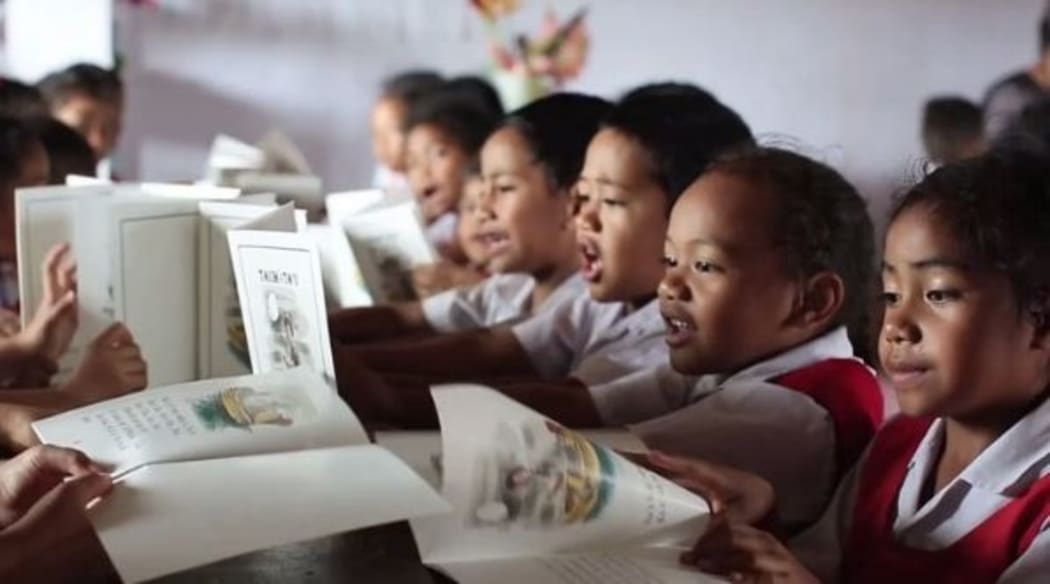
Dr Beumelburg says what he is talking about is developing a thinking space which does not just have a western paradigm. Photo: Malosi Project / PILSA
That's the view of development studies scholar Paul Beumelburg who has just completed his PhD focusing on Mangaia in the Cook Islands.
He said the New Zealand based curriculum used in the Cooks, Niue and Tokelau would work better if the overarching focus was on indigenous culture and ideas with western ideas and knowledge used as a helpful tool.
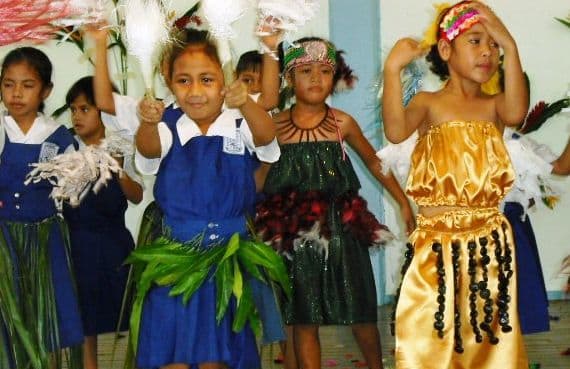
Students at a mission school in Samoa dancing Photo: RNZI/supplied Tipi
He said the study of economics, for example, could be placed in a better context for students.
"There's special characteristics about an isolated island in terms of distant transportation and the cost of transportation, economies of scale and so by looking at those examples, that can really help the students learning, because it's stuff that they're familiar with and that their community can help them learn."
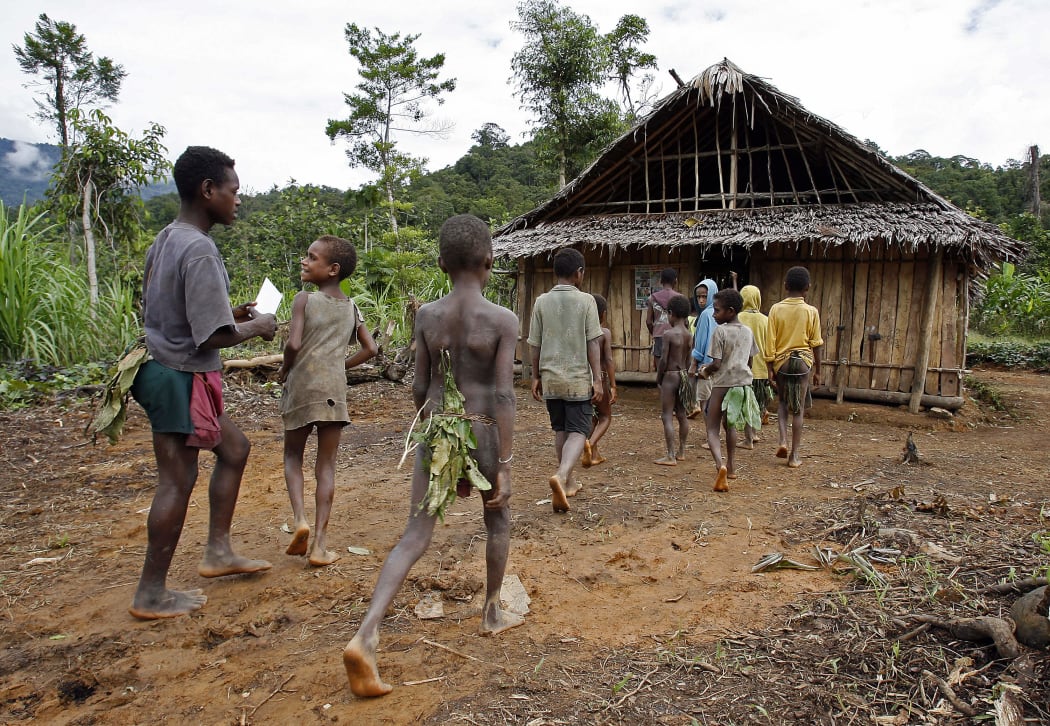
Children of the Andai tribe attend the single-room Lutheran school in Kaiam village in the remote East Sepik province of Papua New Guinea, 05 July 2007. Photo: AFP PHOTO/Torsten BLACKWOOD
Dr Beumelburg lived on the Cooks southernmost island Mangaia for four months over three visits.
He set up a cultural advisory group including community and school leaders and parents and conducted interviews to find out about locals' ideas, values and practises around sustainable living and how these fitted into the education system.
Dr Beumelburg developed a teaching model out of his Mangaia study which he said could be used around the Pacific.
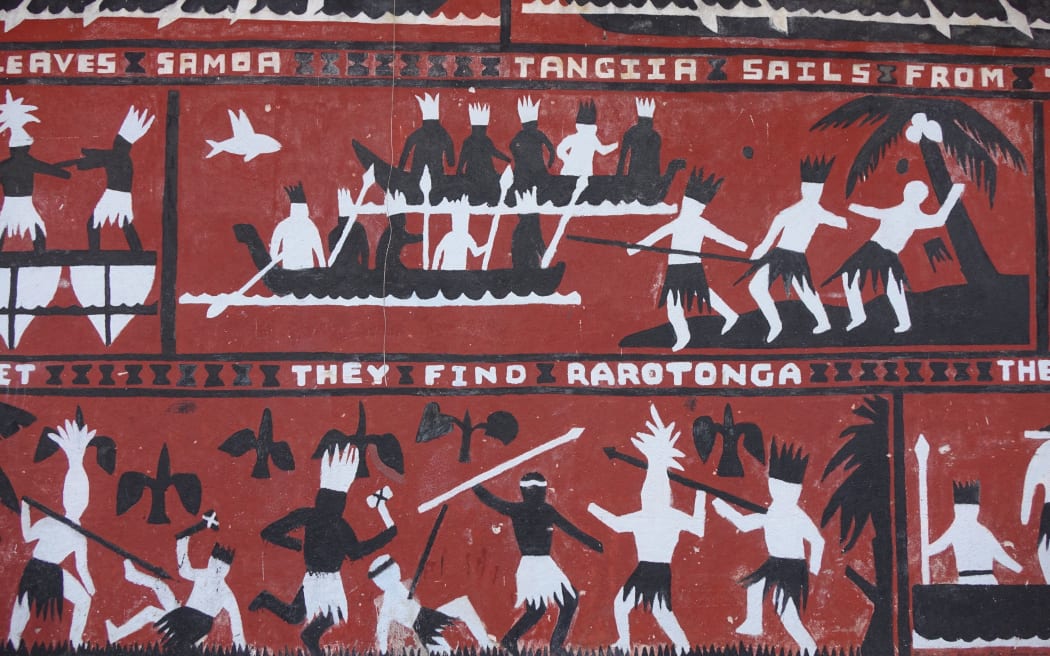
A mural illustrating the Polynesian settling of Rarotonga in the Cook Islands Photo: RNZI/Sally Round
"I'm not dismissing western style education per se. For some they want their students educated with western ideas so that they can become doctors, lawyers, accountants.
"But there's also a lot of students there they've got to look back within their culture and so therefore it's important they understand their own values and customs which are so valuable, " he said.
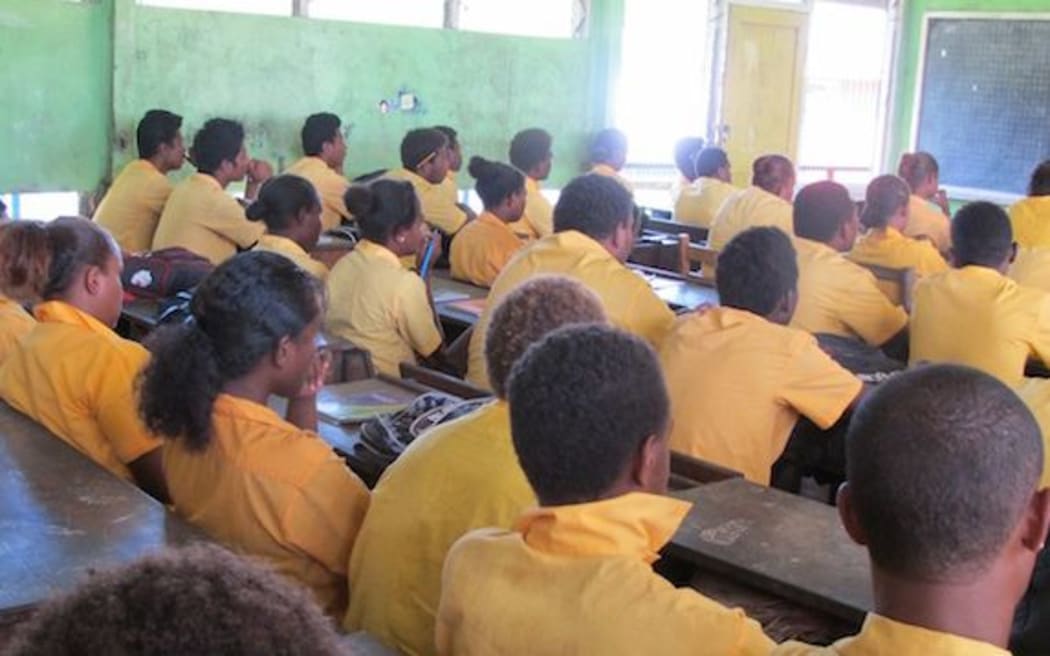
Solomon islands school children in class. Photo: Supplied
Dr Beumelburg said there is a great opportunity within the NCEA system that the Cooks has adopted, to contextualise the standards and make them more relevant to the local people.
"What I'm talking about is just developing a thinking space which is not having just a western paradigm so it's a thinking space which, the centre of it, if you like, is an indigenous focus on in indigenous knowledge and culture, but it allows western ideas and that to come and be critically evaluated and then from there the students can then develop their own conceptions and their own community's conception of sustainable development."
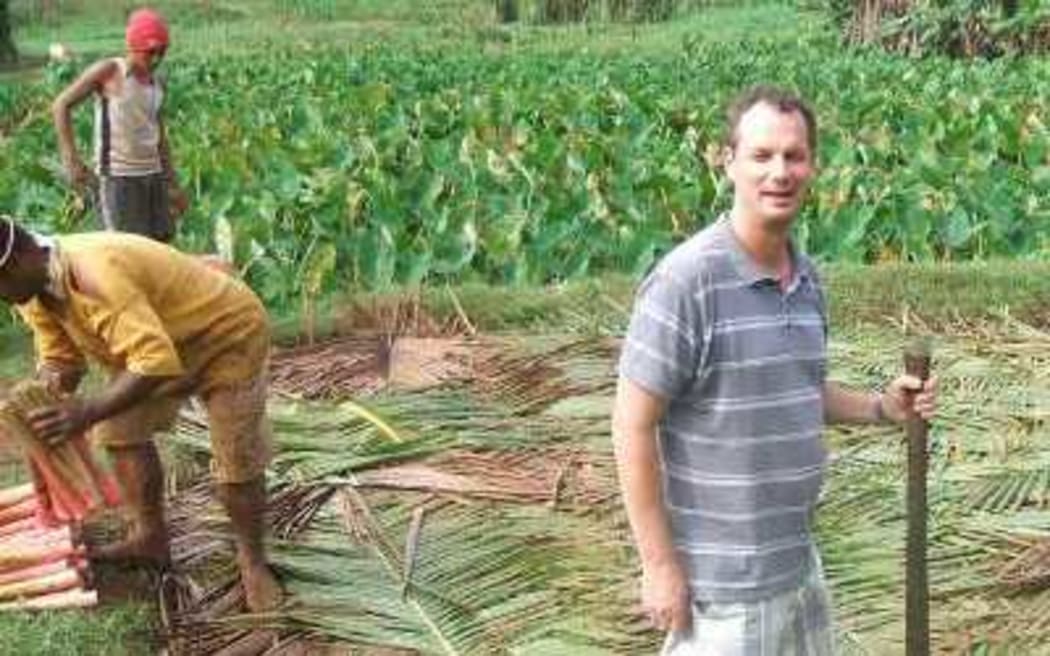
Paul Beumelburg on Mangaia Photo: Supplied
